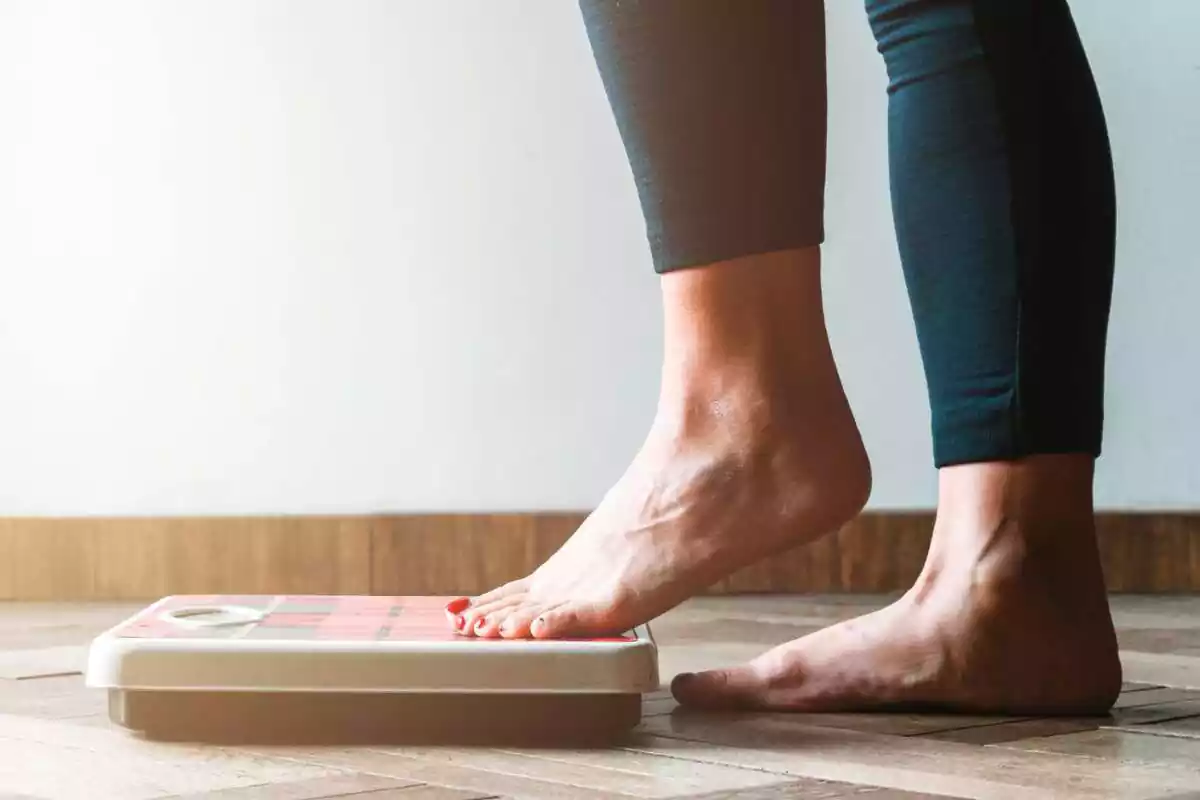The statement "my body and my metabolism change as years go by" is used as a justification by thousands of people when they gain some weight. However, we must tell you that it has been scientifically proven that this statement is not entirely true.
Although the functions of the organism, tissues, and bones deteriorate with age, the accumulation of fat, and therefore the increase in weight, is determined by other factors that have nothing to do directly with the functioning of our metabolism.
Why do we gain weight as we age?
The main factor by which we gain weight as the years go by is closely related to the amount of physical activity we perform throughout the day.
It has been determined that as we grow older, the level of exercise tends to decrease and, as a consequence of this, our body gains volume and weight.
This refutes the hypothesis, established among society, that defends the change of metabolism as the exclusive cause, or almost, of the weight gain.
However, we must not forget that age plays an essential role in this fact since both cell regeneration and the state of the joints worsen as time goes by and with it our ability to perform physical exercise.
The functioning of the metabolism: basic concepts
To give value to the information that we are presenting, we have decided to make a brief review of the concepts related to the body's metabolism.
There are several terms related to metabolism that are important to know in order to understand why we put on weight more easily as we age. Here you have the main ones:
Basal metabolic rate
The metabolic rate of an organism is the "real" and immovable metabolism of a particular body. It is determined by multiple factors such as sex, genetic inheritance or height.
The basal metabolic rate is the energy that the body consumes when carrying out vital functions, such as breathing, digestion processes or other activities automated by the body.
Specific dynamic action
This concept, also known as thermic effect of food or dietary induced thermogenesis, related to the burning of calories refers to the calories that are spent when consuming food, that is, for the simple act of eating. In this process, you can burn 10% of the calories that are burnt daily.
This caloric expenditure can be modified by adding coffee or tea to the diet thanks to the stimulating effect they exert on the metabolism.
Energy expenditure
This is the factor that has greater weight in the consumption of calories by our body. Doing some type of cardiovascular exercise is the key point to avoid gaining weight with age and maintain the silhouette over the years.
The energy expenditure can be modified simply by practicing exercise. Performing aerobic activity such as running, walking at a good pace, climbing stairs or Body Pump classes are good examples of this.
Excess of oxygen consumption
The excess of oxygen consumption is intimately related to the level of physical activity that is performed.
When you have done a workout that has burned a high number of calories and for which a considerable effort has been made, the body continues to burn calories for a while after exercise. Therefore, the more physical activity you do, the excess post-exercise oxygen consumption will be more significant.

The importance of physical exercise
With the previous review about the functioning of our metabolism, it is clear that perhaps the fact of putting on weight with age is not so related to our metabolism but with the factors that directly affect the burning of calories, such as the practice of physical exercise.
Therefore as we age, and due to the aging of our body, the feeling of fatigue appears before and the resistance in the practice of physical exercise declines compared to when we are young.
This translates into an increase in sedentary lifestyle and less physical exercise, which in turn results in an increase in weight on the part of the individual.
To prevent this from happening, we should not place ourselves in a similar position to the learned defenselessness in which we attribute the causes of our weight gain to non-controllable factors, but we should take the reins and strive to maintain the line by focusing on what we can change.
It is evident that these efforts should be stronger as the years go by, but the results will be beneficial for both physical and psychological health.
Tips for not gaining weight with age
Below we will provide some simple tips with which you can prevent the increase in years to be directly proportional to the increase in weight:
- Dedicate at least 3 hours a week to physical exercise.
- Follow a balanced diet, reducing as much as you can the amount of saturated and trans fats.
- Avoid a sedentary lifestyle and watching TV for a long time.
- Include green tea to your diet; it is ideal for the retention of liquids and to slightly increase the caloric expenditure due to the thermic effect of food.
- Continue working and being active as long as your body allows you to and avoid long periods of inactivity.
- Do not forget that maintaining weight depends on ourselves rather than on uncontrollable external factors.
